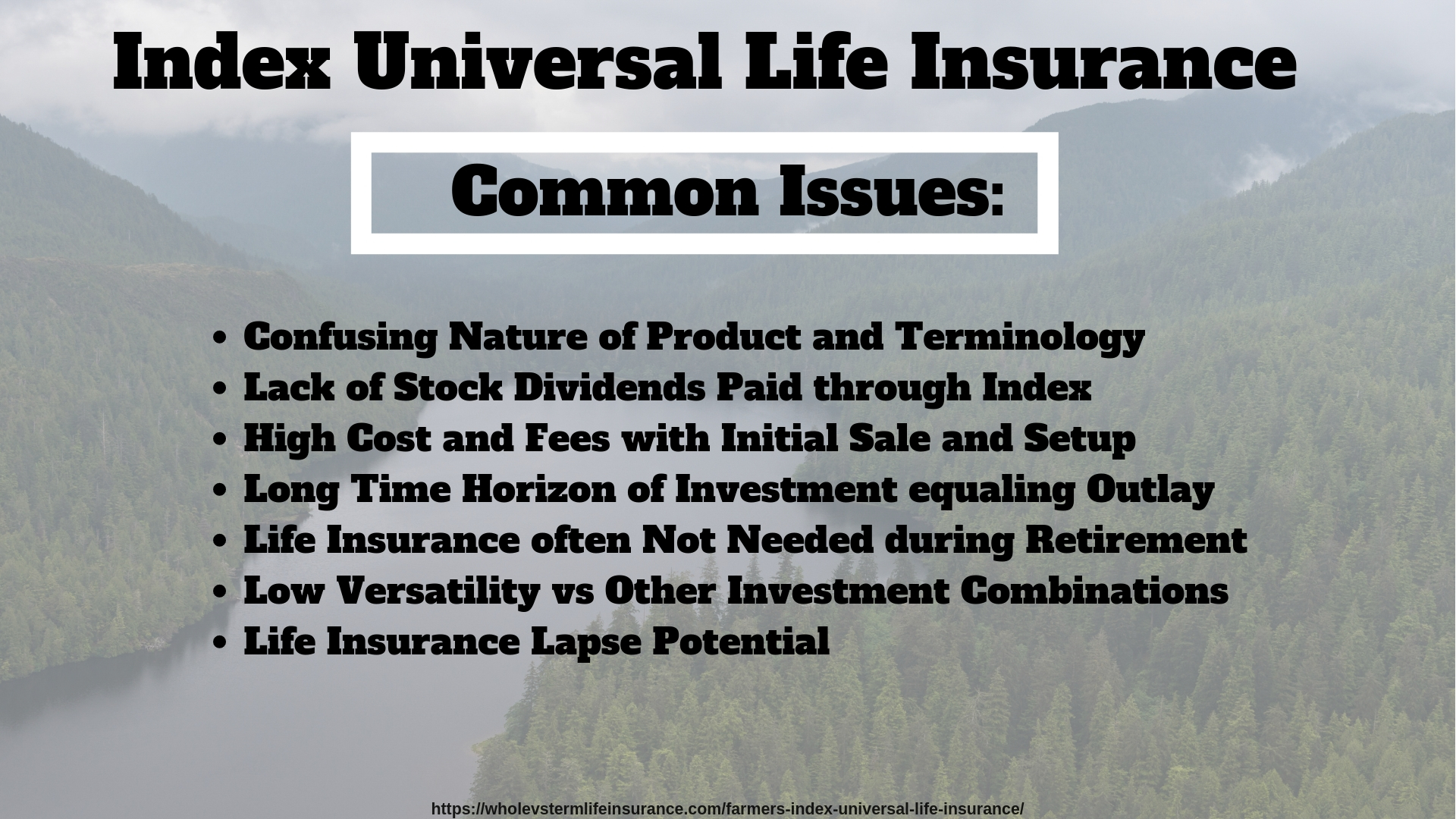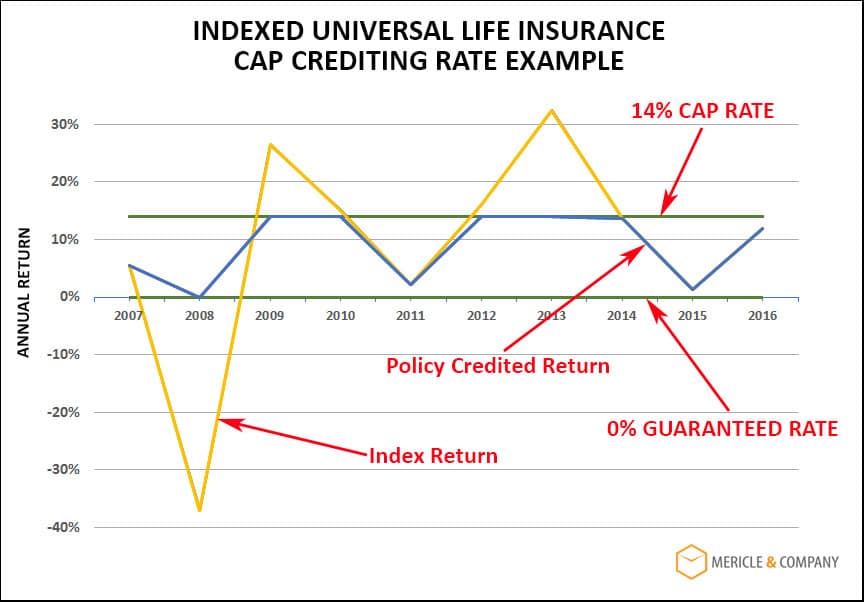All Categories
Featured
Table of Contents
Indexed Universal Life (IUL) insurance is a sort of irreversible life insurance policy plan that integrates the features of standard universal life insurance policy with the potential for cash money worth growth linked to the performance of a stock exchange index, such as the S&P 500 (Indexed Universal Life policy). Like other kinds of long-term life insurance policy, IUL provides a fatality benefit that pays to the beneficiaries when the insured dies
Cash worth buildup: A part of the premium payments goes into a cash money worth account, which makes passion with time. This cash money value can be accessed or obtained against during the insurance holder's lifetime. Indexing option: IUL plans supply the possibility for cash worth growth based on the performance of a supply market index.
How much does Iul Interest Crediting cost?
Similar to all life insurance policy products, there is likewise a collection of dangers that insurance holders need to recognize prior to considering this kind of policy: Market risk: Among the key risks connected with IUL is market risk. Given that the cash value growth is connected to the performance of a supply market index, if the index executes poorly, the money value might not expand as expected.

Sufficient liquidity: Insurance policy holders ought to have a steady financial situation and be comfortable with the premium repayment needs of the IUL policy. IUL permits versatile premium repayments within certain limits, but it's necessary to keep the policy to guarantee it attains its designated goals. Rate of interest in life insurance coverage: Individuals that need life insurance policy coverage and a rate of interest in cash value development may discover IUL appealing.
Prospects for IUL should have the ability to understand the technicians of the plan. IUL might not be the ideal alternative for individuals with a high resistance for market danger, those that prioritize low-priced financial investments, or those with even more immediate financial demands. Consulting with a qualified economic consultant that can provide customized assistance is essential before thinking about an IUL policy.
All registrants will certainly receive a schedule invite and web link to join the webinar through Zoom. Can't make it live? Register anyway and we'll send you a recording of the discussion the next day.
How can I secure Indexed Universal Life Retirement Planning quickly?
You can underpay or miss costs, plus you might be able to readjust your death benefit.
Cash value, along with possible growth of that value through an equity index account. An option to designate part of the cash money value to a fixed passion choice.
Insurance policy holders can determine the percentage designated to the taken care of and indexed accounts. The value of the chosen index is tape-recorded at the beginning of the month and compared to the worth at the end of the month. If the index increases during the month, interest is added to the cash value.
The resulting interest is included to the cash value. Some plans compute the index gets as the amount of the adjustments for the duration, while other plans take an average of the day-to-day gains for a month.
Iul Account Value
The rate is set by the insurance policy company and can be anywhere from 25% to even more than 100%. (The insurance provider can additionally change the take part rate over the life time of the plan.) For instance, if the gain is 6%, the participation price is 50%, and the present cash worth total is $10,000, $300 is added to the money value (6% x 50% x $10,000 = $300).
There are a number of pros and cons to take into consideration prior to purchasing an IUL policy.: Similar to common global life insurance policy, the policyholder can increase their premiums or reduced them in times of hardship.: Quantities attributed to the money value expand tax-deferred. The cash value can pay the insurance costs, allowing the policyholder to lower or stop making out-of-pocket costs settlements.
How long does Indexed Universal Life Vs Term Life coverage last?
Many IUL plans have a later maturation day than other sorts of universal life plans, with some ending when the insured reaches age 121 or even more. If the insured is still to life at that time, policies pay out the survivor benefit (yet not typically the money worth) and the profits might be taxable.

: Smaller policy face worths don't use much benefit over routine UL insurance policies.: If the index goes down, no rate of interest is credited to the cash money worth.
With IUL, the objective is to make money from higher motions in the index.: Due to the fact that the insurance policy firm just purchases alternatives in an index, you're not directly purchased stocks, so you do not profit when firms pay returns to shareholders.: Insurers fee fees for handling your money, which can drain cash money value.
How do I get Iul Policyholders?

For the majority of people, no, IUL isn't much better than a 401(k) - Indexed Universal Life retirement planning in terms of conserving for retired life. A lot of IULs are best for high-net-worth people looking for means to minimize their gross income or those who have actually maxed out their other retirement choices. For every person else, a 401(k) is a better financial investment lorry due to the fact that it does not carry the high costs and costs of an IUL, plus there is no cap on the amount you may earn (unlike with an IUL policy)
While you might not lose any type of money in the account if the index goes down, you won't gain passion. If the market turns favorable, the revenues on your IUL will not be as high as a regular investment account. The high cost of premiums and costs makes IULs pricey and significantly less cost effective than term life.
Indexed universal life (IUL) insurance coverage provides cash value plus a survivor benefit. The cash in the money worth account can gain rate of interest via tracking an equity index, and with some frequently designated to a fixed-rate account. Indexed universal life plans cap just how much money you can collect (frequently at less than 100%) and they are based on a potentially unpredictable equity index.
What is Indexed Universal Life Death Benefit?
A 401(k) is a far better option for that purpose since it does not carry the high fees and costs of an IUL policy, plus there is no cap on the quantity you may make when invested. Most IUL policies are best for high-net-worth individuals looking for to reduce their gross income. Investopedia does not give tax, financial investment, or economic services and recommendations.
If you're considering acquiring an indexed global life policy, initial consult with a monetary advisor that can explain the nuances and offer you a precise photo of the real potential of an IUL policy. Ensure you comprehend just how the insurance provider will certainly compute your rate of interest, profits cap, and charges that may be analyzed.
Latest Posts
Guaranteed Universal Life Insurance Companies
Disadvantages Of Indexed Universal Life Insurance
Is Iul Good For Retirement